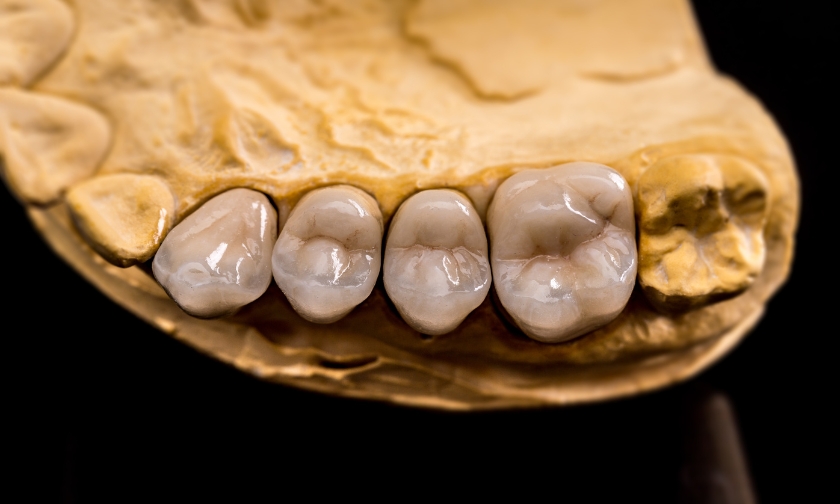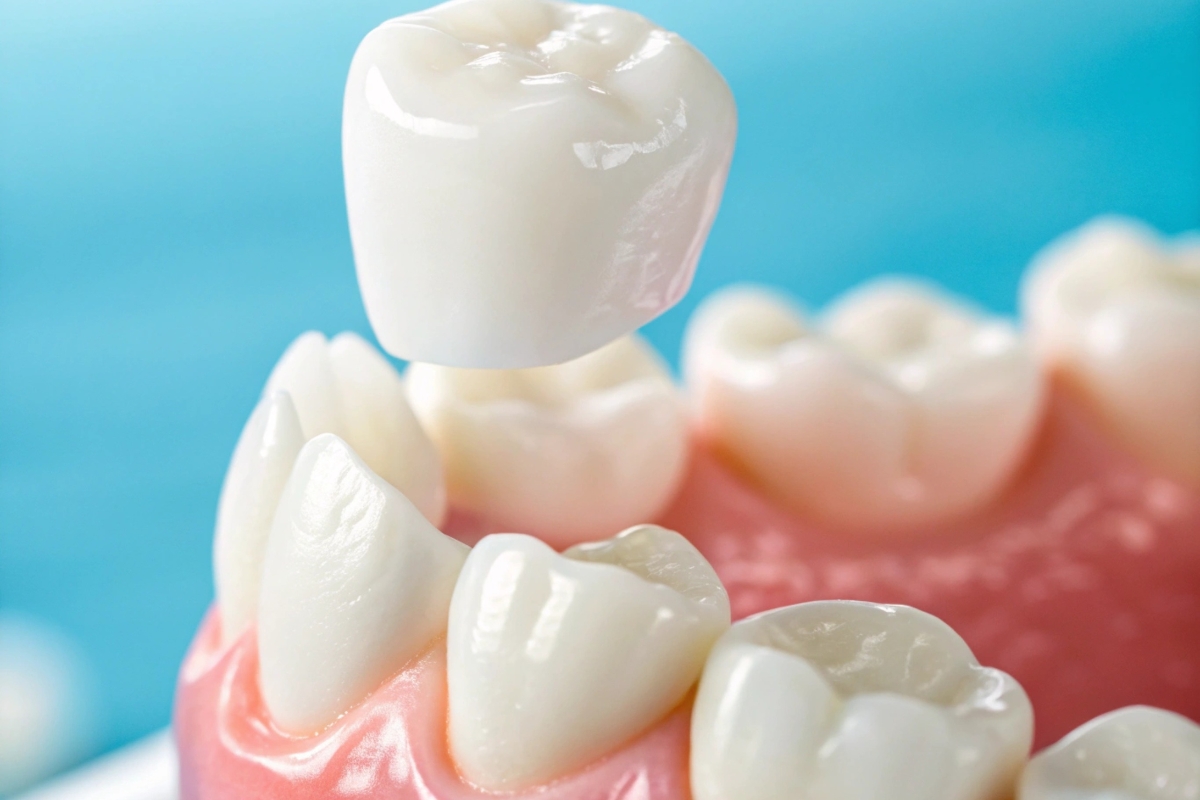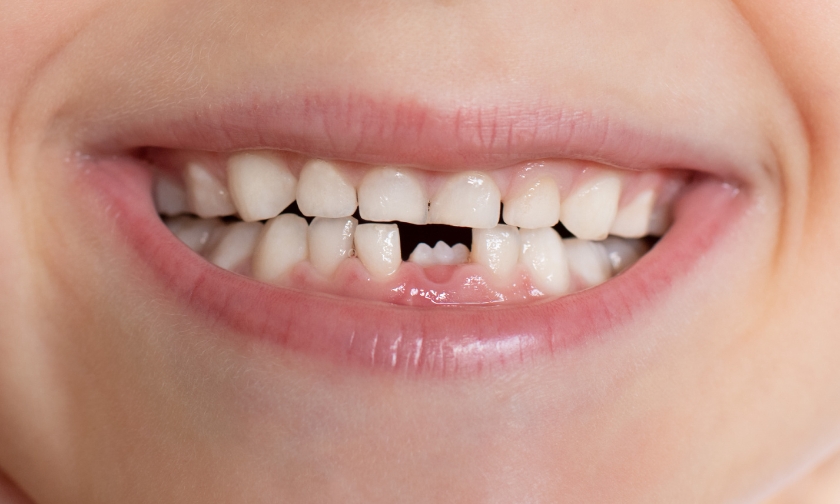
Your smile is more than just a feature—it’s a reflection of your personality, confidence, and well-being. If you’re self-conscious about damaged, worn, or misshapen teeth, dental crowns might be the transformative solution you’ve been looking for. This comprehensive guide will walk you through everything you need to know about dental crowns, offering insights that are both practical and empowering.
What is a Dental Crown?
A dental crown is a custom-made cap placed over a tooth to restore its shape, size, strength, and appearance. Often crafted from materials that mimic the natural colour of teeth, crowns serve both functional and aesthetic purposes. When placed, a crown completely encases the visible portion of a tooth, reinforcing its structure and enhancing its look.
Dental crowns are commonly used in restorative and cosmetic dentistry to protect teeth that can no longer support themselves due to damage or decay. They’re also popular among patients looking to restore their smile’s symmetry and glow.
Why Are Dental Crowns Needed?
Dental crowns are versatile solutions for a range of dental concerns:
- Extensive Tooth Decay: When a tooth is too compromised for a regular filling, a crown helps reinforce and protect it.
- Cracked or Broken Teeth: Trauma, grinding, or wear over time can lead to fractures that need structural support.
- Post Root Canal Treatment: After a root canal, a tooth may become brittle and vulnerable to breakage. Crowns provide essential protection.
- Cosmetic Purposes: Crowns can improve the appearance of discolored, uneven, or misshapen teeth.
- Support for Bridges: They anchor dental bridges, filling in gaps left by missing teeth.
Residents considering dental crowns often choose them to enhance their overall oral health while preserving their natural smile.
Types of Dental Crowns
There is no one-size-fits-all crown. The material and style chosen often depend on the location of the tooth, your personal preferences, and the desired outcome.
- Porcelain Crowns: These offer the most natural appearance, blending seamlessly with surrounding teeth. Ideal for front teeth.
- Porcelain-Fused-to-Metal (PFM) Crowns: A strong option that combines aesthetic appeal with durability. These are commonly used for both front and back teeth.
- All-Metal Crowns: Including gold or other alloys, these crowns are extremely durable and less prone to chipping. Best for molars or out-of-sight teeth.
- Zirconia Crowns: Known for their strength and aesthetics, zirconia crowns are becoming increasingly popular for their longevity and biocompatibility.
- Resin Crowns: A more temporary and cost-effective option, though they wear down more quickly over time.
Each type of crown offers different benefits, and discussing your lifestyle, needs, and preferences with your dental provider can help guide the right choice.
Benefits of Dental Crowns
Opting for dental crowns in Burbank comes with several advantages:
- Improved Appearance: A crown can significantly enhance the look of your teeth, improving your smile and self-confidence.
- Structural Support: Crowns reinforce teeth that are weakened by decay, fillings, or fractures.
- Long-Term Protection: By covering the tooth entirely, crowns prevent further decay or damage.
- Durability: With proper care, most crowns last between 10 to 15 years—or even longer.
- Restored Functionality: Eating, chewing, and speaking become easier and more comfortable.
A crown doesn’t just repair damage—it helps restore your natural bite, improve your facial structure, and bring back the joy of a worry-free smile.
The Procedure for Getting a Dental Crown
Getting a dental crown is a routine yet meticulous process. Here’s what to expect:
- Initial Consultation: The dentist in Burbank evaluates your tooth’s condition, often using X-rays to examine its root and surrounding bone.
- Tooth Preparation: A portion of the tooth surface is removed to create room for the crown. In cases of significant decay, the tooth might be built up with a filling material first.
- Impressions: After reshaping the tooth, an impression is taken to create a crown that fits precisely. This may be done digitally or with traditional molds.
- Temporary Crown: While the permanent crown is being fabricated (usually in a dental lab), a temporary one protects the tooth.
- Permanent Crown Placement: At a follow-up visit, the temporary crown is removed and the new one is fitted. Adjustments are made if necessary before the crown is permanently cemented.
Daily Care Tips for Dental Crowns
Crowns require the same care as natural teeth. Here’s how you can maintain them:
- Brush Twice Daily: Use fluoride toothpaste to strengthen the surrounding tooth structure.
- Floss Regularly: Pay special attention to the area around the crown to prevent plaque buildup.
- Avoid Chewing Hard Objects: This includes ice, pens, and hard candy, which can damage both natural teeth and crowns.
- Wear a Mouthguard: If you grind your teeth at night, a nightguard will protect your crown.
- Visit Your Dentist Twice a Year: Regular checkups ensure that the crown stays in good condition and that underlying teeth remain healthy.
Choosing dental crowns is not just about restoring teeth—it’s about reclaiming confidence, comfort, and the freedom to smile without hesitation. Whether you’re dealing with damage, decay, or simply want to enhance your smile, dental crowns provide a powerful solution tailored to your needs.
If you’re considering a crown or want to learn more about your options, visit our dental office in Burbank, where your journey to a healthier, more radiant smile begins.



